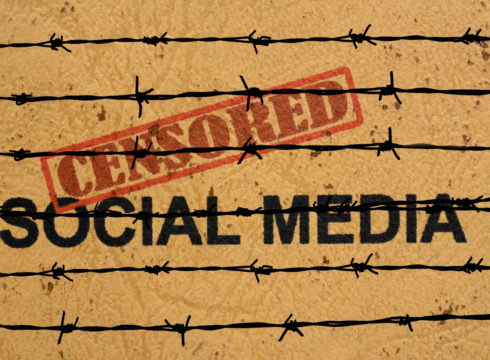SUMMARY
The DoT letter has been issued in the wake of increased mob violence caused by fake news in recent times
Industry bodies believe it might curb the freedom of expression and the government’s Digital India Mission
As per a UNESCO report, India witnessed the highest number of Internet ban instances in 2017-2018
Inc42 Daily Brief
Stay Ahead With Daily News & Analysis on India’s Tech & Startup Economy
The department of telecommunications (DoT) has sought recommendations to block social media apps such as Facebook, WhatsApp, and Telegram during emergencies. It has asked all telecom operators, including the Internet Service Providers Association of India (ISPAI) and industry body Cellular Operators Association of India (COAI) to suggest provisions for the same.
Rumours and fake news proliferating on social media platforms such as WhatsApp and Facebook have resulted in a series of mob lynchings and killings in recent times. The platforms have also become a medium for child pornography, which is completely illegal in India.
While the DoT, in its letter, has invoked Section 69A of the IT Act 2000, internet service providers (ISPs) believe such bans will be difficult to enforce and will violate the fundamental right of speech and expression.
The letter says to telecom operators and ISPs: “You are… requested to explore various possible options and confirm how the Instagram/Facebook/Whatsapp/Telegram and such other mobile apps can be blocked on the Internet.”
In escalated situations, such as in Kashmir, the government has so far been practising banning Internet connectivity completely followed by a curfew. However, “The Indian government believes that banning WhatsApp, Facebook, and other social media apps in advance without imposing a complete ban on Internet connectivity in the circled area might help avoid to escalate the mob violence,” a DoT official told Inc42.
“The letter explores alternate ways to impose a partial ban on Internet connectivity,” the person added.
According to reports, the DoT letter asking ISPs to suggest ways on how to ban social media apps has been issued on the directions of the cyber law division of the ministry of electronics and information technology (MeitY).
Regarding Internet shutdowns as a standard measuring the freedom of expression index in a state, according to a UNESCO report, India has witnessed the highest number of Internet ban instances in the last one year, 2017-2018.
Over 10 instances of the Internet being affected were registered in Rajasthan, while Uttar Pradesh, Bihar, Punjab, and Haryana saw less than 10 cases of Internet shutdown in 2017-18. Last year, the hill town of Darjeeling in West Bengal witnessed internet ban during its 104-day strike in the wake of statehood demands.
The UNESCO report said: “Internet shutdown and deliberate slowdowns are increasing the world over and are now also a barometer on press freedom and freedom of expression controls. South Asia has witnessed the highest number of Internet shutdowns globally, with India earning the dubious crown for the country with the highest number of Internet shutdowns.”
However, industry bodies downcast the government speculative measures. In a letter written to telecom secretary Aruna Sundararajan, Assocham said, “Overly broad, extended, or frequent blocks would also run directly counter to the government’s stated objective of facilitating the emergence of a new Digital India.”
[The development was reported by Mint]
Note: We at Inc42 take our ethics very seriously. More information about it can be found here.


